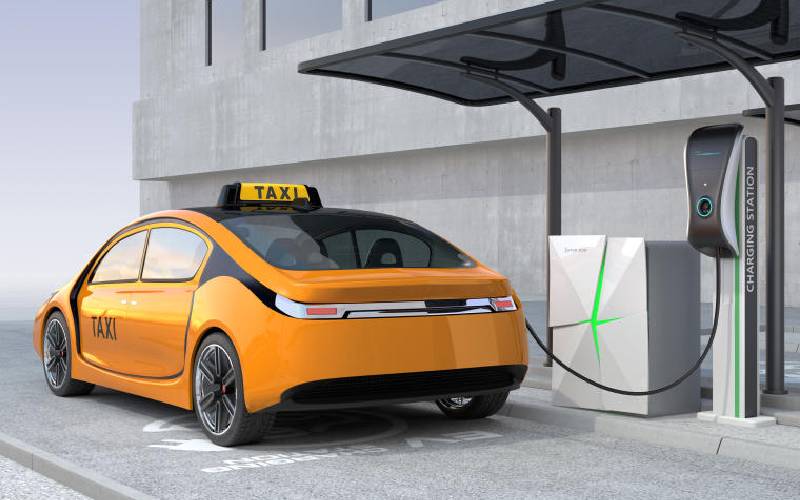An electric taxi charging at a station. [Courtesy] Last month, Kenya Power and Lighting Company (KPLC) announced plans to roll out a national network of electric vehicle (EV) charging stations, with the goal of unleashing new revenue streams and diversifying their business.
No details have been provided about how exactly they plan to fund and execute this ambitious project, and the proposal has been met with general enthusiasm. However, moving too quickly to build new charging infrastructure without the fundamentals in place could be a major mistake.
At first glance, KPLC’s plans seem timely and progressive. KPLC isn’t the first African utility to express EV ambitions, though their plans for a national network are quite ambitious relative to the rather modest ventures that have been put on the table so far. By comparison, South Africa’s Eskom, Africa’s largest utility, has committed to a small EV pilot comprising six vehicles and 15 charging stations according to recent reports. EVs are on the ascendancy globally, forming an important linchpin of the global climate and energy transition. EV adoption is growing at a rapid pace, and the International Energy Agency projects that 60 per cent of global car sales will be electric by 2030.
Kenya is particularly well-positioned to lead Africa on EVs. Our electricity mix is overwhelmingly carbon-free – over 90 per cent of our power was generated from renewable sources in 2020 – boosting the green credentials of our EVs relative to countries that are reliant on dirtier energy. EVs can also help clean up our notoriously polluting transportation sector, accounting for about 12 per cent of our greenhouse gas emissions in 2015 and a major contributor to the air quality crisis in our urban areas, as well as reduce our reliance on fuel imports that take up 40 per cent of our foreign exchange earnings.
The government has also adopted a target to increase the share of EVs to 5 per cent of all car imports by 2025, halved import duties for EVs, among other policies and incentive schemes under consideration to create an enabling environment for EV adoption. Finally, Kenya already boasts a small but growing EV startup ecosystem, with many capitalising on the growing opportunity to electrify its growing fleet of two and three-wheeled vehicles.
KPLC, which has a virtual monopoly in electricity distribution and sales, is necessarily central to Kenya’s EV ecosystem and stands to benefit if it plays its cards […]
